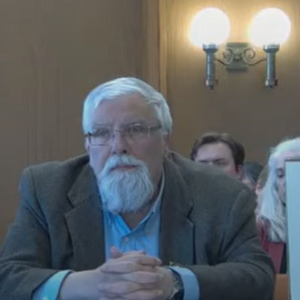New Hampshire Democrats doubled down on their opposition to parental rights Tuesday, reviving their previous arguments against a newly-revamped Parents Bill of Rights backed by House Republicans.
Gov. Kelly Ayotte campaigned on supporting parental rights legislation, and Speaker Sherm Packard (R-Londonderry) is the lead sponsor, a sign of how much of a priority the legislation is for the GOP.
Meanwhile, Democrats have made no secret of their differences with Republicans on this issue. Republicans say nobody will love a child as much as his or her parents, while Democrats say parents are too untrustworthy — or even dangerous — to be given total transparency about their children’s behavior.
During Tuesday’s hearing before the House Children and Family Law Committee, Packard acknowledged that his original legislation has gone through a major rewrite. Rep. Debra DeSimone (R-Atkinson) played a key role in that re-write, and she told the committee she personally “went over every single word, every period, every comma, every ‘t’ that had been crossed.”
“This has been a right we’ve heard about from constituents that’s been denied for many, many, years,” DeSimone said.
Many New Hampshire parents were surprised to learn that public school systems, like Manchester’s, have policies banning faculty and staff from giving parents information they request about their own children. In one high-profile case, a school refused to answer a parent’s questions about her child’s behavior at school related to sex and gender.
HB 10 would affirm a parent’s right to information about their child, including the right to know what materials are being used in class, what’s in their child’s school records, and the right to control non-emergency medical treatment given to their children.
The bill also affirms broad principles of parental rights, including the right to make medical decisions for their children, and the right to direct their child’s education.
“I have had so many parents from my community and from across the state come to me, and tell me that they are the ones who are responsible for the upbringing of their children,” Packard said. “The schools are not the responsible party when it comes to raising the child. They’re there to teach the child. That’s why we need a parental bill of rights.”
As they have in the past, Democrats balked.
Rep. Tim Horrigan (D-Durham) claimed the bill is “unnecessary” and gives parents too much power.
“It might be more appropriate to craft a children’s bill of rights,” Horrigan said. “Obviously, children are more dependent on their parents. I think the children’s rights should come first.”
Deb Howes, president of the New Hampshire chapter of the American Federation of Teachers, told the committee her members opposed the legislation, arguing that an expansion of parental rights into the school and classroom isn’t needed.
Supporters of the legislation don’t agree, pointing to the repeated incidents of teachers being disciplined or even prosecuted for inappropriate behavior toward students and asking why schools would ever encourage adult employees and children to keep secrets from parents.
Just last week, a Claremont Middle School teacher was arrested for violating an anti-stalking order for a 14-year-old student with whom she had traveled out of state alone in the past. Police told NHJournal the teacher had been under investigation for alleged sexual misconduct for months, but the Claremont school district allowed her to continue to teach.
It’s just one of a series of incidents involving New Hampshire teachers in recent months.
Howes agreed the amended version of the bill is an improvement as it removed language pertaining to teachers being charged with a criminal misdemeanor for failing to disclose information they deem sensitive to parents.
“We do still have some concerns,” she added, singling out a line referencing “moral or religious training.”
“If every single parent insisted they had the right to direct what goes on in the classroom, how do you teach, what do you teach?” she asked. “When you send a child to public school, how we decide what to teach is the job of the local school board.”
Opponents of the bill also repeated their claim that informing parents of their children’s behavior was too dangerous, that parents couldn’t be trusted not to turn violent — or even deadly — if they learned, for example, about their child’s sexuality.
“I ask the committee to examine how the language will impact LGBTQ+ students who are not ready to come out to their parents, and who may face direct consequences at home,” said Linds Jakows with 603 Equality.
Merrimack parent Heather Robitaille also testified in opposition and claimed the legislation could prevent people from wanting to become teachers.
“This bill is specifically targeting public schools and their educators, giving parents procedures to object to instructional materials,” she said. “If this passes, educators will undoubtedly limit the diversity and inclusivity of their instructional materials for fear of parental reprisal.”
Ann Marie Banfield, a parental rights advocate from Bedford, testified in support but said the proposal should be more “focused on parents’ authentic right to care for their children.”
She said a “glaring” omission in the bill is the collection of sensitive student data by tech vendors.
“Everybody in the world can access student information, but for some reason, parents can’t,” she said, referencing student-issued computers and the sharing of data. “Isn’t that interesting?”





